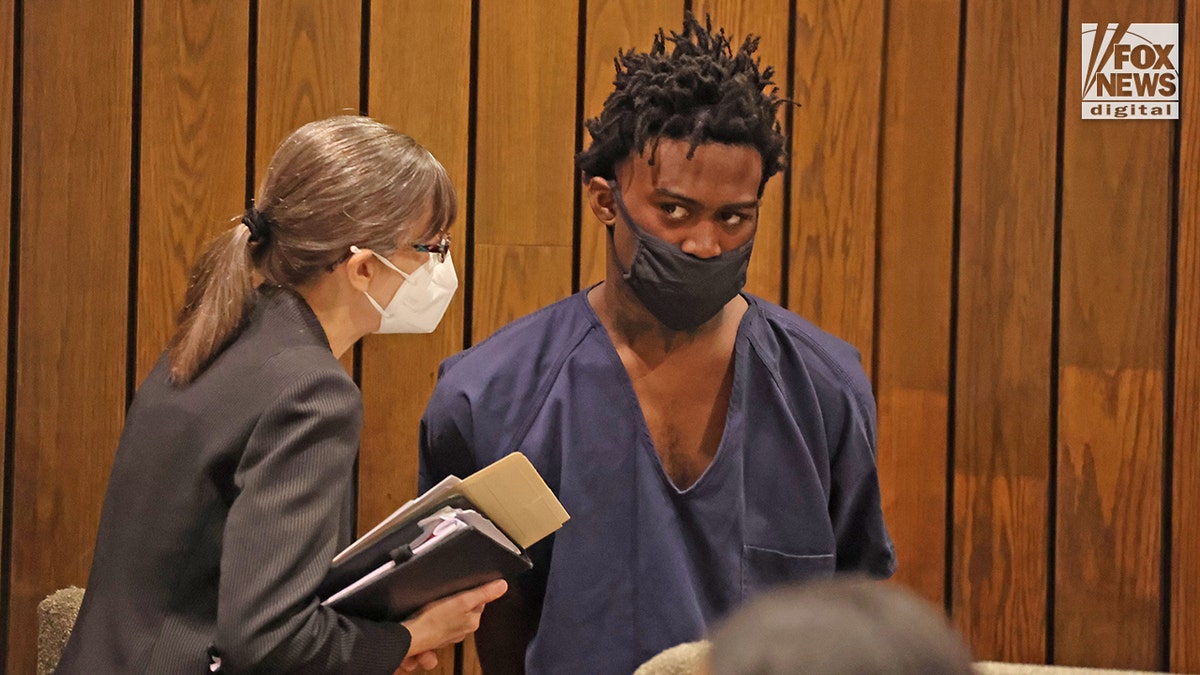Fox News Flash top headlines for May 6
Fox News Flash top headlines are here. Check out what's clicking on Foxnews.com.
Tennessee lawmakers have sent a "blended sentencing" bill to Gov. Bill Lee's desk that will crack down on lenient punishments for the worst of the worst juvenile offenders by handing them adult punishments after they age out of the juvenile system.
Under current law, the juvenile justice system loses jurisdiction over a young offender after his or her 19th birthday. The blended sentencing bill gives serious offenders a maximum of three to five additional years in adult prison if they meet certain negative criteria after aging out.
"If they're 17 or 18 years old, and they commit a violent crime, and they're not prosecuted as an adult, by the time they turn age 19, their record is wiped clean," said Tennessee House Speaker Cameraon Sexton, who introduced the bill. "Nobody can see it anymore. They get a free pass."
Under the new bill, juvenile suspects 16 or older who are found responsible for the equivalent of an adult class A, B or C felony, can face a "blended" sentence that includes adult punishment, ranging from probation to prison time, after their 18th birthday. No blended sentence can extend beyond the offender's 25th birthday.

Speaker of the Tennessee House Cameron Sexton during the second day of a special session on public safety to discuss gun violence in the wake of the Covenant School shooting in Nashville, Aug. 22, 2023. (Reuters/Seth Herald )
Young offenders would no longer go scot-free after serving less than two years for a violent crime such as carjacking a family at gunpoint, Sexton told Fox News Digital.
"We worked with the juvenile judges as much as we could to come up with something that was reasonable, something that would hold them accountable and put in place a blended sentencing model where if you were a juvenile, and you truly wanted to get back to society in a good place, then we put in some conditions that you had to follow," he said. "And you have to do three of seven, graduate high school, get a GED, obtain a job, not commit more crimes, and you have to do a certain number of those over the next little bit not to be moved to adult court or held over to the age of 25."
The blended sentencing bill passed both the state House and Senate at the end of April, and sets stringent guidelines for the most serious offenses, requiring young criminals to demonstrate that they plan to turn their lives around if they want to avoid adult prison time.

Republican Tennessee Gov. Bill Lee responds to questions during a news conference, April 11, 2023, in Nashville. He is expected to sign the blended sentencing bill that would impose adult punishments on the worst of the worst juvenile offenders. (AP Photo/George Walker IV)
"This isn't stealing a candy bar from a grocery store," Sexton told Fox News Digital. "This would be carjackings. This would be murders. This would be kidnappings."
Sexton said lawmakers drew up the bill after the state saw a spike in juvenile carjackings during the COVID-19 pandemic and in the wake of the state's successful "truth in sentencing" bill that put an end to early prison release for violent criminals.
MEMPHIS MAYOR DEFENDS POLICE CHIEF AS CRIME RISES

Memphis police officer Joseph McKinney's car is covered with flowers. The officer was killed in the line of duty in April during a shootout with two teen suspects. (Memphis Police Department)
"The juveniles were being given a slap on the wrist, and you just saw one after another making bail, getting out without any bail and re-offending," he said. "So we started looking at what we could do to handle juvenile crime."
Gov. Lee is expected to sign it into law after a series of brazen crimes.
Just last month, Memphis Police Officer Joseph McKinney died in a shootout with two teen suspects, ages 17 and 18. Police did not identify them but said one of the two, who had been released from custody just days before, was killed as well.
In September 2022, Memphis saw a shocking active shooter attack in which a 19-year-old suspect, Ezekiel Kelly, was accused of driving around the city and livestreaming multiple shootings in a rampage that killed four and injured three.

Ezekiel Kelly appears in Shelby County court in Memphis, Tennessee, on Sept. 9, 2022. Kelly is alleged to have killed four people and injured more as he drove around Memphis firing at will and carjacking numerous people. (Matt Symons for Fox News Digital)
Despite his age, he had a lengthy rap sheet and had already been released from prison early after a plea deal let him avoid an attempted murder charge and admit to the lesser crime of aggravated assault.
Offenders like Kelly, whose spree of carnage came to an end when he crashed a stolen car and police closed in, would no longer get a shot at early freedom and would remain on law enforcement's radar under the new bill.
Even when released, they would be required to meet certain criteria, including finishing school or getting a GED, avoiding committing new crimes – and holding down a job or getting into college.
"You have a very vocal minority that started saying five or six years ago, ‘You got to give criminals a chance. You got to be nice to them. You got to give them all the tools to turn their life around,'" he said. "If you're committing petty crimes, OK, I can understand that. But we said, there's a line. When you cross that line, and you commit these crimes, you move from being a small-time criminal to a major criminal."

A Tennessee State Police SUV parked on the side of a road. A new blended sentencing bill in the state aims to reduce juvenile crime by imposing strict, adult punishments on the most severe offenders. (Tennessee Highway Patrol)
Critics warn the bill could face constitutional challenges, but Sexton said lawmakers discussed the measure with prosecutors, law enforcement, mayors and even judges before putting it up for a vote.
CLICK HERE TO GET THE FOX NEWS APP
Sexton said the state House is also working on a separate legislative plan, the Juvenile Prohibitor Bill, which would block violent juvenile offenders from legally being able to purchase a gun until they are 25 or older.
In 2026, state voters will have the chance to weigh in on another bail reform measure – an amendment to the Tennessee Constitution that would expand the list of violent charges a judge can hold a defendant without bond for.











































